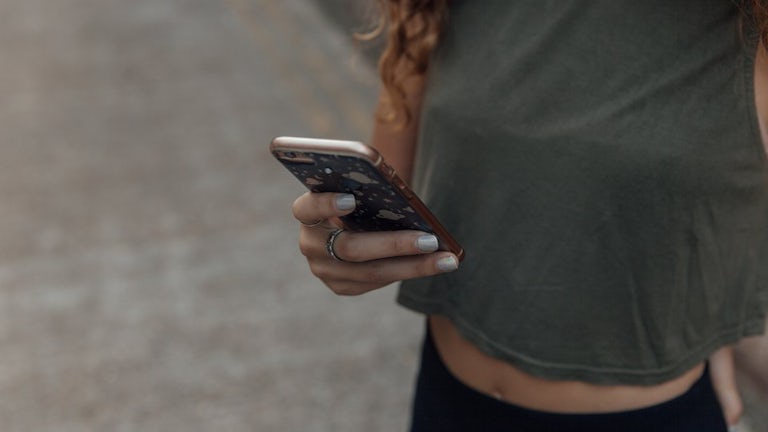Shopping Bag (0)
Shopping bag is empty

Seed are Amplify's sister agency. Seed specialise in accessing and engaging student audiences all over the world for brands including Spotify, ASOS and Nike. Their ‘What Matters To Us’ research is being released later this week highlighting some gems to help brands better understand this ever changing audience. We have identified 3 key trends that marketers need to be aware of and take positive action on to stay ahead of the curve with this always questioning, culturally expanding and socially aware group.
"I think we're getting to the point where people are putting less importance on social media, I think especially amongst people in my immediate circle."
Whilst brands have been focussing on their social strategies, and Instagram has been figuring out how to increase ad spend on their platform, students have been asking themselves whether social is good for them at all.
Countless studies have shown even a few hours of social media usage a day is bad for our mental well-being, increasing chances of depression, low self-esteem and obsessive behaviour. So, it should come as no surprise that a subculture of students is emerging who take social media detoxes, with a hard core few staying off social channels completely.
77% of students said they would definitely do or consider doing a no-social-media-month, in line with Dry January, Veganuary, November, etc. 10% of those admitted that they really needed it.
Young people don't always want to be plugged in, they are fully aware of the dangers but experience real conflict when it comes to potentially missing out or being left behind.
There is hope for brands to follow where they lead, however. Students told us that the best part of a brand campaign was the experiential component, demonstrating that a real world presence is more important now than ever. Amazon, Sonos and Birchbox are just a few brands blurring the lines between digital and physical, offering audiences a genuine connection and a way to break out of their digital bubbles.
It looks like there is a tide of social media detox coming. Brands need to help young people find a balance and seamlessly integrate on and off line. Apps like Calm, which promote breaks from social media and ways of managing addiction to it are winning app of the year. Brands can't afford to ignore the sentiment, no matter how much energy they have put into their social strategies thus far.
“Me and my flatmates, we’ll sit in, mix some tunes, watch some football, darts, wrestling, maybe chip in, make a big dinner, eat it together, that sort of thing.”
Booze brands have always been able to entice students with drink deals on and off trade. But it’s no secret that alcohol consumption is down with more socialising being done outside of the traditional pubs, clubs and bars. Students are under pressure, with more debt, higher university fees and fewer guaranteed career prospects. And although the cost of going out can be prohibitive, it transpires that actually the main inhibitor for responsible students is the downtime and loss of productivity after a big night, whether in or out of the home. Not something you would have expected to hear from a previously notoriously hedonistic group.
Staying in is definitely the new going out. And staying sober doesn’t raise eyebrows. More than 50% of students told us chilling out and relaxing at home is their favourite group activity.
It’s no wonder though, when you consider the advances in home tech and internet speeds. Only 24% of our respondents were gamers but a significant majority had Amazon Video, Netflix, a Spotify or Soundcloud account with a decent sound system and access to services like Uber Eats and Deliveroo. Really, with a cinema, club and restaurant under one roof, why would they do anything else?
The challenge for brands in this situation is becoming part of the fabric of a student’s ‘at home’ leisure experience. But if you aren’t an entertainment brand, what do you do? Uber is a great example of a brand that went from being the facilitator of going out with cheap rides, to the facilitator of staying in with Uber Eats.
“ASOS have been highlighted for not photoshopping out stretch marks, and this has prompted more people to talk about their stretch marks, speak up about them.”
Students have always been an idealistic group who are ready to embrace change and so you would expect that as brands like Nike,Monki and ASOS push the agenda of normalising and celebrating imperfect beauty, they would be doing the same themselves.
Sadly, a massive 83% of students feel pressure to look perfect in real life.
Again, even though they understand the dangers and impossible nature of being flawless, 74% said they felt pressured to look perfect on their social channels. Constant rounds of editing, filtering, removing and untagging have become an everyday part of curating their online image.
Young people are in a phase of their lives where they are trying to establish their own identity and therefore not willing to risk a negative response from their peers. However, even though they are gravitating to marketing campaigns that challenge beauty standards, it seems that until it’s generally accepted that imperfections make us perfect, they won’t be ‘going unfiltered’ on social media.
This is a chance for brands to be pioneers. Dove and CVS are creating their own stamps to mark advertising that hasn’t been digitally altered. And with research from Dove finding 77% of women believe all images in the media have been altered, it’s easy to see why.
Brands like Adidas and ASOS have proven that when you act bravely, you win with youth. From stretch marks, to braids, to fuller figures this generation crave realness even if they aren't there themselves.